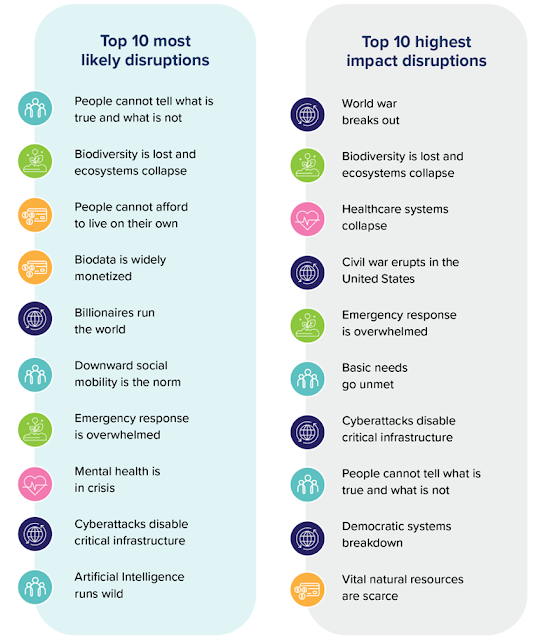What is Our Actual Reality?
I read many articles every month, which allows me to detect certain patterns within these articles. (I am working on slowing down on the number.) A large percentage of most of them contain so much bargaining and hopium that a reader who understands the predicaments we face can only laugh or cry at them. I try to glean what I can from them and ignore the parts of denial of reality and optimism bias, but some articles are so full of crap it's just not funny. Here's a prime example of what I'm talking about (although I often list these types of articles and have even written entire articles based upon them, named appropriately, Fantasies, Myths, and Fairy Tales). That article (the prime example) lists an issue caused by several different symptom predicaments of ecological overshoot, namely, pollution loading, climate change, and ocean acidification (also a symptom of climate change).
Now, to be sure, the bleaching and death of coral reefs is very serious, indeed. For anyone who hasn't read much about them, being suddenly exposed to this information sends the signal that "we must do something about this immediately." The article provides a laundry list of prescriptive actions such as cleaning beaches and reducing plastic pollution, but without reducing overshoot globally, existing coral reefs are doomed. Beach cleanups, cutting back on plastic, and everything else they recommended just isn't gonna cut the mustard. Reducing overshoot is the only way to reduce pollution loading, climate change, ocean acidification, and all the other symptom predicaments such as emissions. I feel bad for pointing that specific article out though, because there are literally hundreds of these every month that contain the same type of "offerings of hope" primarily due to the fact that one needs false hope to deal with the fact that none of the actions typically listed will actually cure or even reduce the issues they are listed for.
It's similar to offering paper bags at grocery stores instead of plastic or paper straws at restaurants instead of plastic ones. Do they really reduce the threat of plastic pollution? Perhaps in a small token way; but overwhelmingly we simply wind up producing different types of plastic or increasing other ways of plastic pollution instead. Part of the issue with plastics is that the feedstock for them comes from refining crude oil. Initially, the feedstock for plastics is a waste product from producing the main products of crude oil, different grades of fuel. So, getting "rid" of plastics more or less means getting rid of fossil fuels. But wait...how do we power civilization without fossil fuels? Well, we could go back to powering civilization with just agriculture, trees, and human and animal power like we did back in the early 1700s, but this would most likely require a mass die-off of about 6 or 7 out of every 8 people. There simply wouldn't be enough energy and resources for more people because we are in extreme overshoot. In fact, some studies show far less than one billion people currently could be supported without the energy provided by fossil fuels.
I've gone down quite the rabbit hole here. But in order to explain why none of the issues we face have simple answers, there really is no other way. Simply saying that what we face is a predicament with an outcome and not a problem with an answer doesn't really suffice for most people. I might as well be speaking a foreign language with the looks I get from most people. Their faces scrunch up and get all wrinkly with confused looks like, "WHAT?!!" My passion for trying to explain all of this so that others can understand the situation gets me every time. I really want others to comprehend these predicaments.
George Tsakraklides provides a great article here about the common narratives regarding so-called "solutions" to the predicaments we face. A similar article from Jem Bendell goes into detail about these narratives and the stark reality. Many people focus on climate change, even though overshoot is really the overarching issue. This article from The Conversation pretty much sums up typical "solutions" with the following quote:
"Climate change is dangerous because of weather that affects particular places at particular times. Simply put, this extra heat is making weather more unstable. Unfortunately, having temperature targets makes solar geoengineering seem like a sensible approach because it may lower temperatures. But it does this by not reducing, but increasing our interference in the climate system. Trying to block out the sun in response to increasing carbon emissions is like turning on the air conditioning in response to a house fire."
'To put it in concrete terms: With no new investment, global oil supplies would fall by more than 15 million barrels per day in the first year alone." This is a scary prospect because "At that rate, by 2030, oil supplies would fall from 100 million barrels per day to less than 30 million - that's 70 million barrels short of what's needed to meet demand every day.' "












Comments
Post a Comment